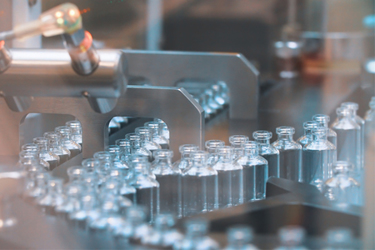Container Closure Integrity: A Risk-Based Approach To Ensure Drug Product Quality
By Fran DeGrazio and T. Page McAndrew, West Pharmaceutical Services, Inc.

Qualification, and demonstration of fit-for-purpose, for a drug product vial/stopper/seal primary package system comprises many factors: protection, compatibility, safety, and performance.
One of the subcategories is container closure integrity (CCI), which is the topic of this article. CCI is essential to protect the drug product through shelf life, and to demonstrate an integral system to regulatory agencies.
Historically, leakage of the primary package system has been a major reason for FDA field alerts. (3) To try to address this and other issues, in 2016 the United States Pharmacopeial Convention (USP) published a guidance: Chapter <1207> Sterile Product – Package Integrity Evaluation. (4) Therein a new concept was defined: maximum allowable leakage limit (MALL). MALL is the greatest rate that can be accepted for a primary package system and drug product; it is unique to each system. A system has integrity, i.e., CCI, if it allows no leak rate greater than the MALL. In other words, the system prevents product/potency loss, prevents microorganism ingress, and suitably limits entry of detrimental substances, thus ensuring drug product quality. To determine MALL, numerous factors must be considered, e.g., drug sensitivity to oxygen ingress.
Get unlimited access to:
Enter your credentials below to log in. Not yet a member of Pharmaceutical Online? Subscribe today.
